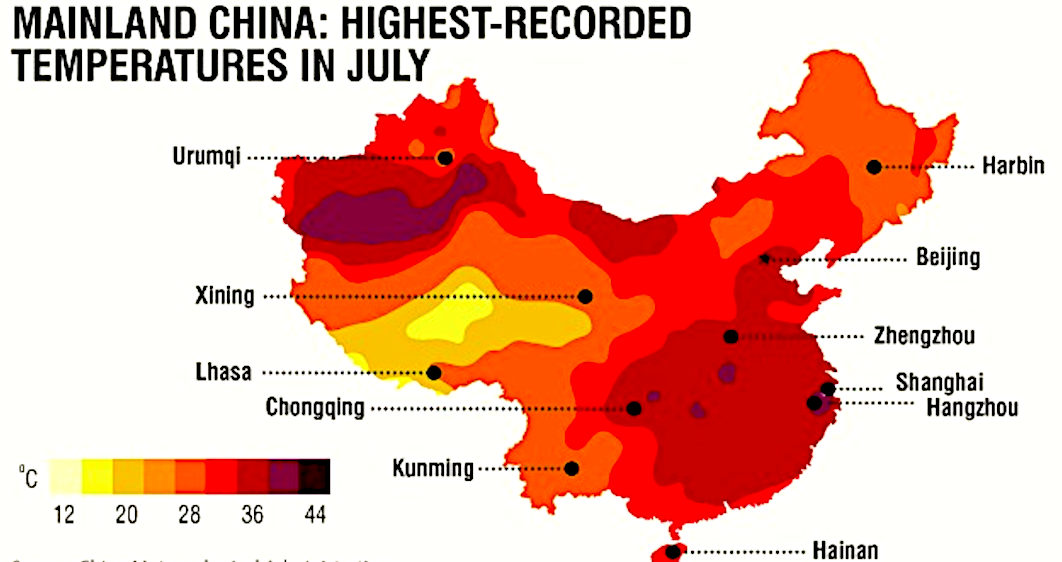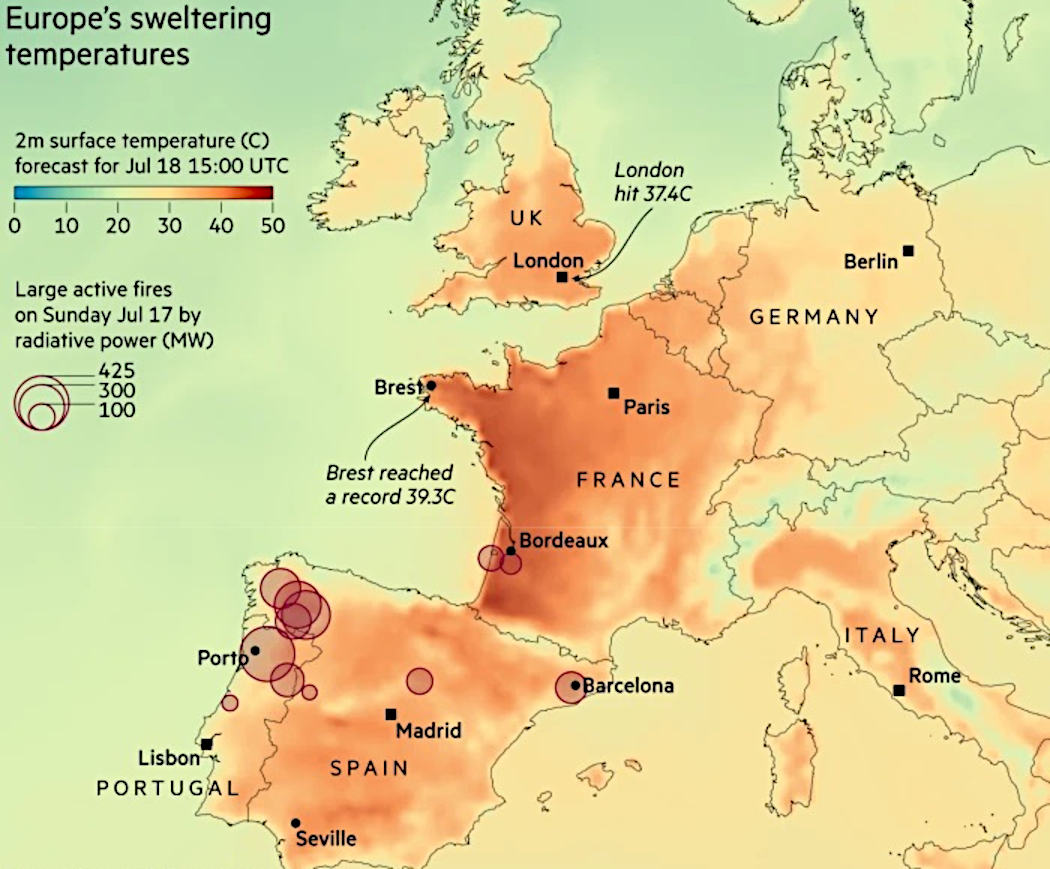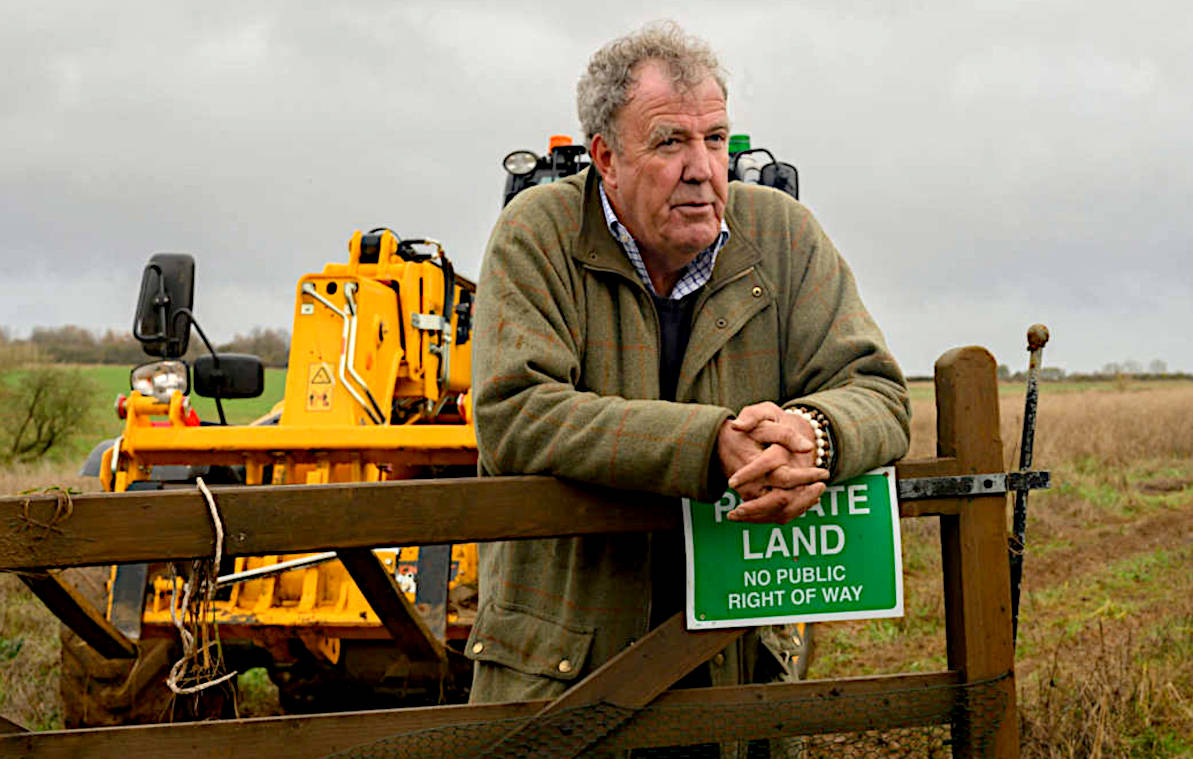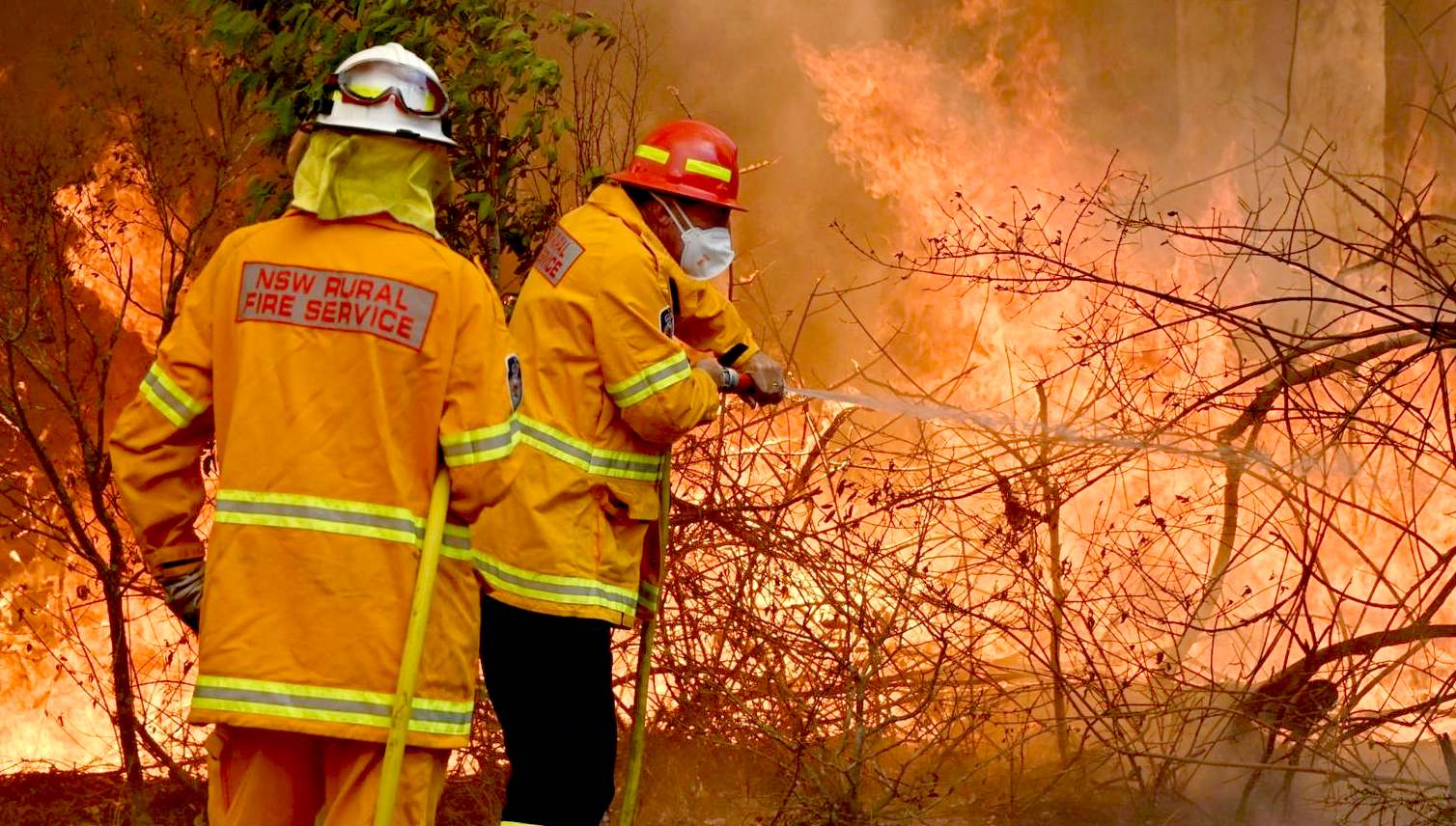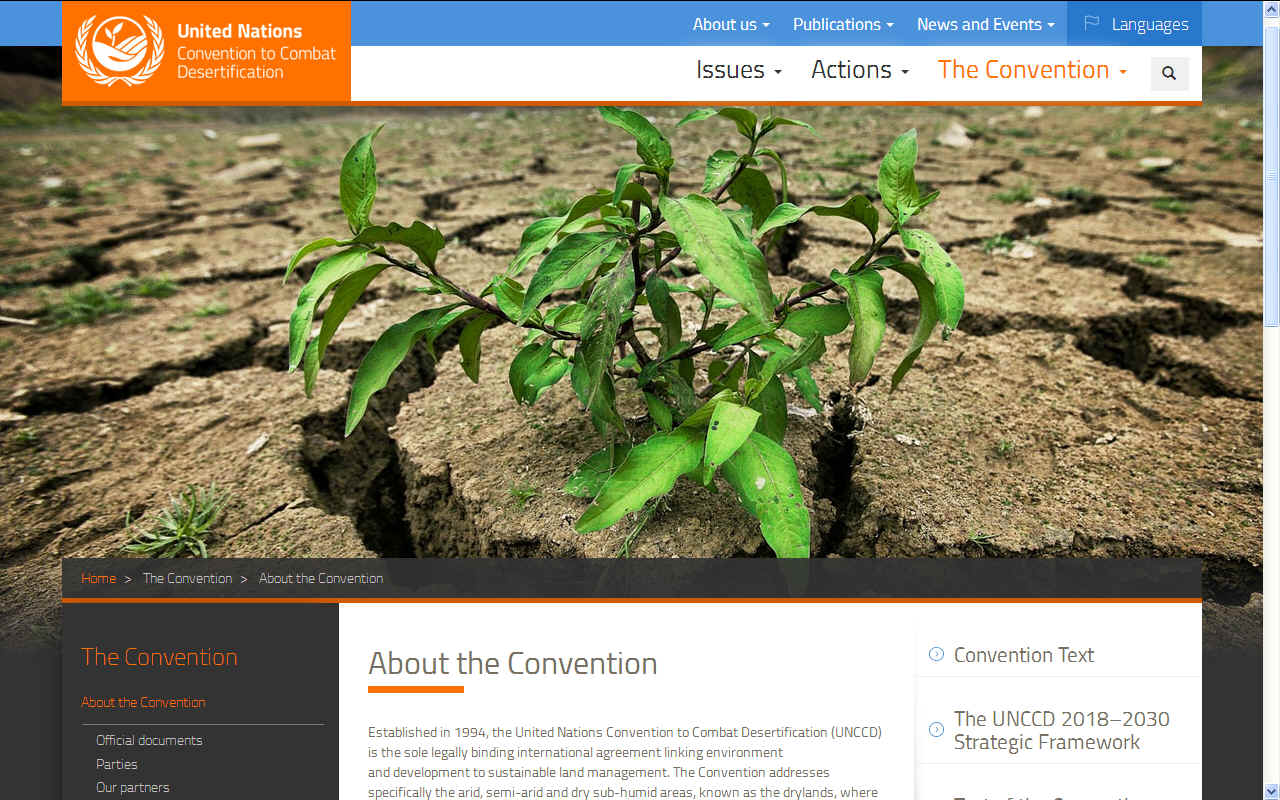|
NANJING & BEIJING - HEATWAVE FIRES JULY 2022
Please use our A-Z INDEX to navigate this site or see HOME
|
|
ARMAGEDDON - The consequences of failing to act when you have the opportunity, is that it is too late when the roasting escalates. What you can hope for is that the politicians who allowed the situation to go unchecked, are the ones the public roast first when the crops fail - and we are forced to consider other sources of protein.
"The main drivers are the rapid increase in the frequency of heatwaves, followed by
population
growth, population aging, and rising baseline mortality. From the 2000s to the 2010s, these four factors accounted for 40.6%, 22.4%, 20.8%, and 16.2% of the change in attributed human deaths, respectively," said Prof. Huang Cunrui, from the Institute of Atmospheric Physics.
CNN - 21 JULY 2022
- CHINA ENDURES EXTREME SUMMER WEATHER, RECORD RAINFALL & SCORCHING HEAT WAVE
Scientists have been warning for years that the climate crisis would amplify extreme weather, making it deadlier and more frequent. Now, like much of the world, China is reeling from its impact.
Since the country's rainy season started in May, heavy rainstorms have brought severe flooding and landslides to large swathes of southern China, killing dozens of people, displacing millions and causing economic losses running into billions of yuan.
In June, extreme rainfall broke "historical records" in coastal Fujian province, and parts of Guangdong and Guangxi provinces. At the same time, a heat wave began to envelop northern China, pushing temperatures over 40 degrees Celsius (104 Fahrenheit).
That heat wave has now engulfed half the country, affecting more than 900 million people -- or about 64% of the population. All but two northeastern provinces in China have issued high-temperature warnings, with 84 cities issuing their highest-level red alerts last Wednesday.
In recent weeks, a total of 71 national weather stations across China have logged temperatures that smashed records. Four cities
- three in the central province of Hebei and one in Yunnan in the southwest
- saw temperatures reaching 44 degrees Celsius (111 Fahrenheit), according to the National Climate Center.
And the worst might be still to come, according to Yao Wenguang, a Ministry of Water Resources official overseeing flood and drought prevention.
"It is predicted that from July to August, there will be more extreme weather events in China, and regional flood conditions and drought conditions will be heavier than usual," Yao told state-run Xinhua news agency last month.
Between 1951 and 2020, China's annual average surface temperature was rising at a pace of 0.26 degrees Celsius per decade, the report said. Sea levels around China's coastlines rose faster than the global average from 1980 to 2020, according to the report.
The changing climate can make extreme weather events - such as summer floods, which China has grappled with for centuries -- more frequent and intense, said Johnny Chan, an emeritus professor of atmospheric science at the City University of Hong Kong.
A warmer atmosphere can hold more water vapor, potentially leading to heavier rainstorms, while global warming can alter atmospheric circulation, which can contribute to extreme weather such as heat waves, Chan said.
"We should be really concerned, because these extreme weather events actually affect the most underprivileged, disadvantaged and vulnerable parts of the population
- those in the rural areas, or those who don't have air conditioning or live in very crowded conditions," Chan said.
cyclones, floods and droughts are estimated to cost China about $238 billion annually -- the highest in the Asia Pacific region and nearly three times the estimated loss suffered by India or Japan, according to a report released last year by the World Meteorological Organization.
Heat wave-related mortality in China rose by a factor of four from 1990 to 2019, reaching 26,800 deaths in 2019, according to a Lancet study published in 2020.
The Chinese government has promised to bring greenhouse gases to a peak before 2030 and to achieve carbon neutrality by 2060.
For many Chinese, the dangers of extreme weather fueled by climate change hit home last summer, when devastating floods killed 380 people in the central city of Zhengzhou, the provincial capital of Henan province.
"The central government and local governments started to be aware that climate change is such an enormous threat to society and its sustainable development," she said, adding that she has noticed more discussions about climate change and extreme weather in China's traditional and social media.
Since last summer, many Chinese cities have improved their emergency response systems for extreme rainfall. In May, authorities in the southern metropolis of Guangzhou suspended schools, advised residents to work from home, closed construction sites and suspended public transportation in parts of the city following alerts for torrential rains.
"Climate change has already brought serious adverse impacts to China's natural ecological system, and has continued to spread and penetrate into economy and society," the government said in its national climate change adaptation strategy.
It vowed to make China a "climate-resilient society" by 2035, by building a nationwide system to monitor and assess climate risks, and by boosting early warning capabilities.
Liu said the policy document is a "very big and ambitious" piece of guidance for local governments, but it lacks details on implementation.
"The impact of climate change can be very localized and its threat to vulnerable communities can be very different from place to place," she said. "Local governments still need to develop more detailed and tangible plans to implement this grand strategy."
By Nectar Gan
ARSONIST POLICIES - According to the UN, the world is on course for a catastrophic temperature rise of 2.7°C (4.9°F) if we don't change our habits fast. Despite targets to reduce our collective carbon footprint by 2030, many countries are still polluting the planet through fossil fuels and deforestation.
Meanwhile London sizzled at 37.4C, Bordeaux had to be evacuated, Barcelona, Oporto and Landiras blazed away. Canada had a similar experience in July 2021 & 2022, in Lytton, British Columbia.
It's not as if politicians did not know about the consequences of failing to act from at least 30 years ago. Their sloth is leading us to extinction, with the 1.5 degrees Celsius target now impossible to achieve.
So brace yourselves. This is just the beginning. Unless, policies change tomorrow - and that is not going to happen with the so-called United Nations unable to agree on anything - the epitome of a dysfunctional do-good organization, bereft of teeth. All they can do is give the G20s conscience a gentle suck. They used to get more of a kicking from dear old Greta Thunberg, when she was young enough to make a difference. But even the Swedish dynamo could not sway them during FLOP 25 and FLOP 26. Brace yourself for FLOP 27. More talk and obfuscation, as oil barons superheat the planet, while making themselves and political supporters rich.
The problem is those in power have too much invested in coal, gas and oil, for rapid change - roughly $2.8 billion dollars a day to be precise. That's like asking you to hand over your wallet and the codes to your bank accounts. It's not going to happen. Politicians are greedy for money and power. They will not change until it's either their houses on fire, or they cannot get elected without immediate zero carbon policies.
In the UK, Council's like Wealden are the same, leading us down the path to damnation, as they refuse to build sustainable housing, in favour of expensive palaces, allowing them to charge more Tax. Yup, and what is that for? Their retirement fund of course - it's all about the money. Will these climate geriatrics have anything to retire to! They still don't get it. It is not about growth, it is about reductions to 1990 levels. It is about a phased shrinking of the economy. One the planet can afford.
They really are a bunch of fossil fools. You cannot grow, if you have already exceeded the natural limits of your living space.
We should be thinking about shrinking our economies, re-wilding and planting trees. Wealden want exactly the opposite. Staggering stupidity comes from fat wallets. The fatter your wallet, the more blind, deaf & dumb you become.
There are none so blind as those who will not see. The arson of the planet continues.
HEAR NO, SEE NO, SPEAK NO EVIL - Jeremy Clarkson has been promoting petrol and diesel vehicles for years. Unapologetically. He still does not seem to get it. But then he has raked in the cash from helping to sell fast fossil fueled vehicles over many years. With such incentives, it is no wonder his moral compass is bewildering to many on twitter, etc. Tweet, tweet! He even had a go at Greta Thunberg. That is how far climate deniers will go for their jollies. In our view this man should not be allowed on television, to tell everyone that everything is okay - when that is blatantly untrue. Don't you agree that he is a fossil fool.
FINANCIAL TIMES 17 JULY 2022 - CLIMATE CHANGE SHOVED IN OUR FACE - EUROPE WRESTLES WITH HEATWAVE AND FOREST FIRES
We are not sure the world will have to wait that long, as temperature rises are almost exponential, from the cumulative effects of population growth and economic expansion. All of which need to burn fuel. Coal being the choice for Australia, China and India. Even Japan is building more coal power stations. And we thought they were intelligent.
HEATWAVES A TO Z
Australia Brazil
& Amazon rainforest
London had a similar experience in July 2022 Tokyo & Osaka, Japan June 2022 USA
FOREST FIRE A TO Z
Arctic Bolivian British Columbian Canadian - Saskatchewan Chilean Croatian Ecuador Europe heat wave 17 July 2022 France Greece Malaysian Mongolian Portugal Spain Sweden USA - California, Yosemite - Montana - Georgia - Sacramento UK - Saddleworth Moor - Moray - Dartmoor
WOOD IS GOOD x 10 PLEASE
Timber grown for wood is only good if part of a replanting scheme, with at least 2 trees planted for every one felled, though we would suggest up to 10 trees should be planted to offset the loss of carbon absorption during growth.
We need to plant more trees - a whole lot more trees, not clear them, and especially not waste timber that is a vital renewable resource for zero carbon house building. Forest fires that cause deforestation are raising the temperature of Planet Earth and there is no Planet B.
LINKS & REFERENCE
https://edition.cnn.com/2022/07/20/china/china-summer-extreme-weather-climate-change-intl-hnk-mic/index.html https://www.bbc.co.uk/news/world-asia-61976937 https://www.itv.com/news/london/2022-07-19/major-incident-declared-across-london-as-heatwave-triggers-multiple-fires https://www.ft.com/content/6e52be5f-4091-4b38-8156-9e3e7f4e4bf3
SOIL EROSION - The more land that we lose to grow crops the greater the food security issue. As the ice caps melt, desertification spreads to make Earth more uninhabitable.
Please use our A-Z INDEX to navigate this site or see HOME
|
|
|
This website is provided on a free basis as a public information service. copyright © Climate Change Trust 2022. Solar Studios, BN271RF, United Kingdom.
|
